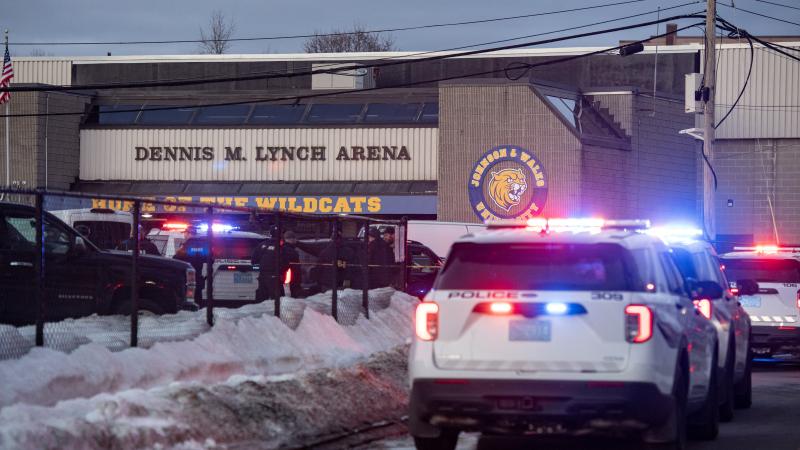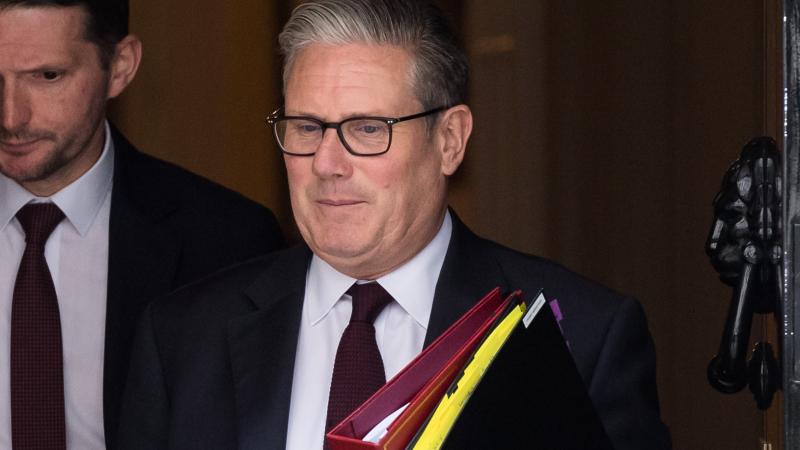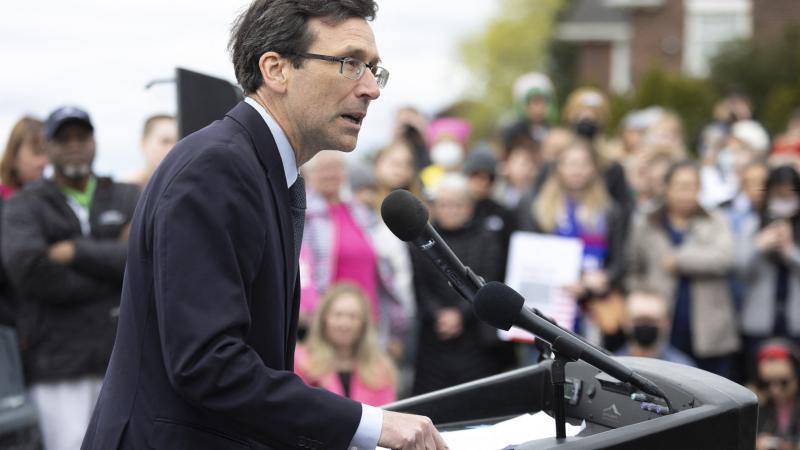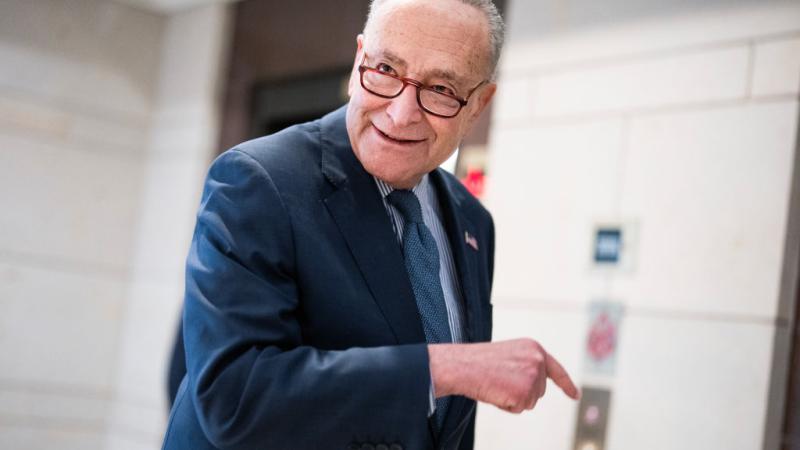Biden Admin used Jan. 6 to artificially inflate domestic terrorism threat, declassified intel shows
Tipping the Scales: Declassified analysis released shows the Biden Administration used the Capitol riot of January 6, 2021 to inflate the data about the "domestic terrorism" threat facing the United States.
Newly declassified intelligence now shows that most of the reported rise in the number of domestic terrorism cases — cited by the Biden administration as a basis for instituting a sweeping expansion in federal law enforcement — was actually tied to one single event that tipped the scales in their favor: the Capitol riot of January 6, 2021.
The artificial inflation of the domestic terrorism threat was revealed in newly-declassified intelligence records from early 2022 made public by Director of National Intelligence Tulsi Gabbard earlier this year.
The declassified “Special Analysis” report by U.S. intelligence and law enforcement agencies from February 2022 revealed that “61 percent” of all alleged domestic terrorism-related cases being investigated by the FBI at the time were related to the Capitol riot, and that “78 percent” of arrests allegedly tied to domestic terrorism in 2021 in fact stemmed from the singular riot in early January 2021.
The Biden administration had long been accused by conservatives and civil libertarians of dodging reality for four years, and he and his party made as much political capital as possible out of the riot, calling it "an insurrection" and a horrific event of domestic terrorism. Thus, the administrative apparatus sought to increase its authority and police powers to pursue domestic terrorists more aggressively.
At the same time that argument was being made, neither Biden nor his subordinates told the public just how overweighted the riot was in their data.
The until-recently-classified document was put together in early 2022 by the “Joint Analytic Cell on Domestic Violent Extremism” run by the FBI, the Department of Homeland Security (DHS), and the National Counterterrorism Center (NCTC). The document was declassified by the Office of the Director of National Intelligence (ODNI) in late April.
January 6 accounted for 78% of 'domestic terrorism' arrests in 2021
“The FBI is investigating approximately 2,950 domestic terrorism-related cases, 61 percent of which are related to the 6 January siege of the US Capitol,” the then-classified Biden administration analysis revealed in 2022. “The size and complexity of U.S. Capitol siege-related investigations have required the Department of Justice, to include the FBI, to surge resources to investigate and prosecute Capitol siege participants, while maintaining an agile security posture to address domestic terrorism threats.”
The revelation was found in a subsection on “Fatal Domestic Violent Extremist Attacks and FBI Investigations” despite the fact that, contrary to the repeated claims of many Democrats, the Capitol rioters did not kill anyone.
Image
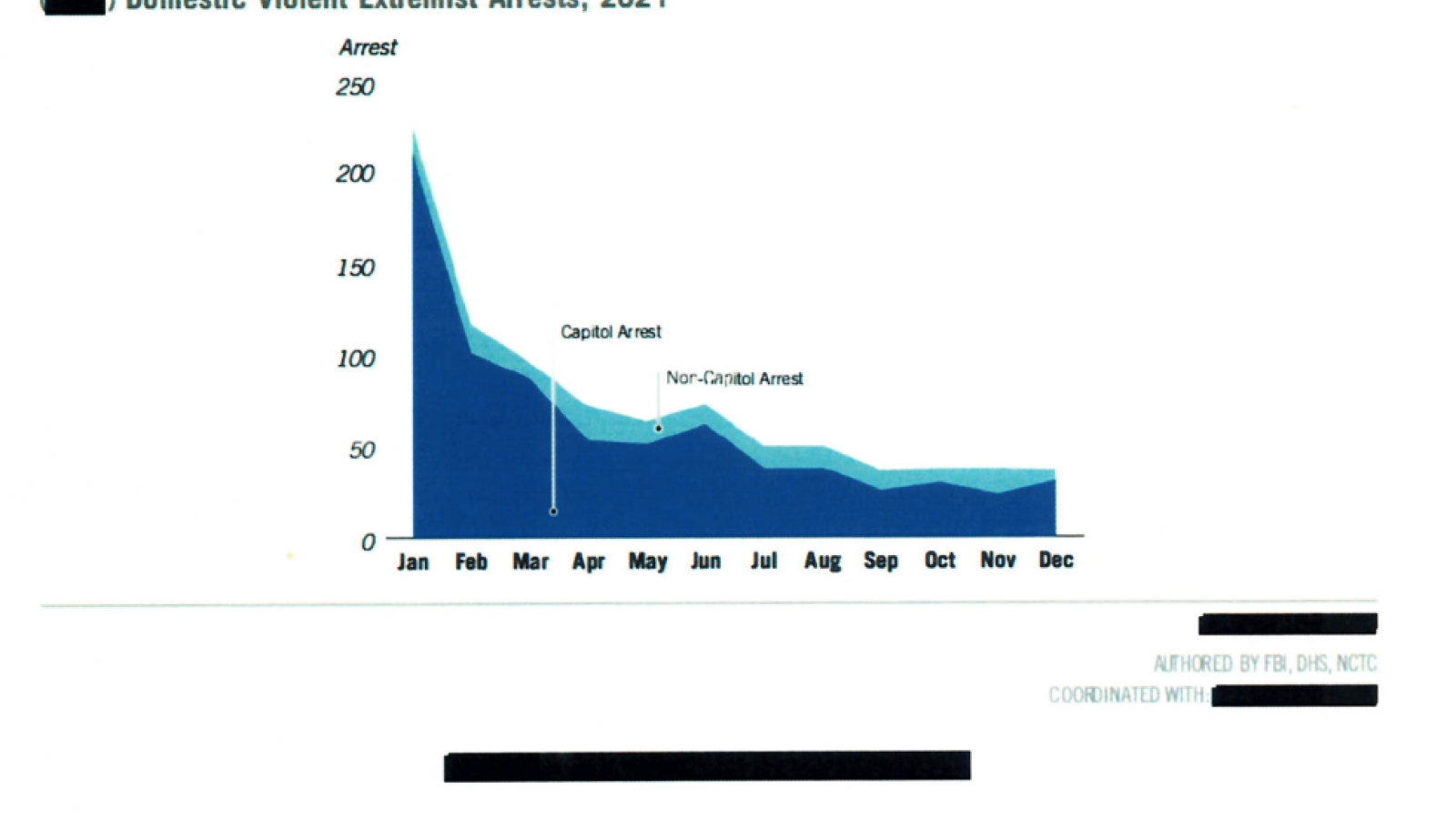
Declassified by ODNI in April 2025
Joint Analytic Cell on DVE
Earlier in the intelligence analysis, the newly-released document had contended that “the number of pending FBI domestic terrorism investigations more than doubled in 2021 — from about 1,400 to about 2,900 — in part because of cases related to the siege of the US Capitol on 6 January 2021.” The public was never told this.
The phrase “in part” downplayed the reality and was highly misleading: The “61 percent” figure added up to roughly 1,800 new domestic terrorism cases — which means that, based on their own figures, there would have actually been roughly 300 fewer domestic terrorism cases in 2021 than in 2020 if not for nearly 2,000 Capitol riot cases being dubbed domestic terrorism.
The declassified analysis also revealed that, with regard to the number of alleged domestic terrorism-related arrests in the fiscal year of 2021, “78 percent of arrests related to 6 January Capitol Siege.” The graphic included in the analysis showed that, excluding the Capitol riot, the number of domestic terrorism arrests for 2021 would have actually been smaller than the number of domestic terrorism arrests in 2020.
Image
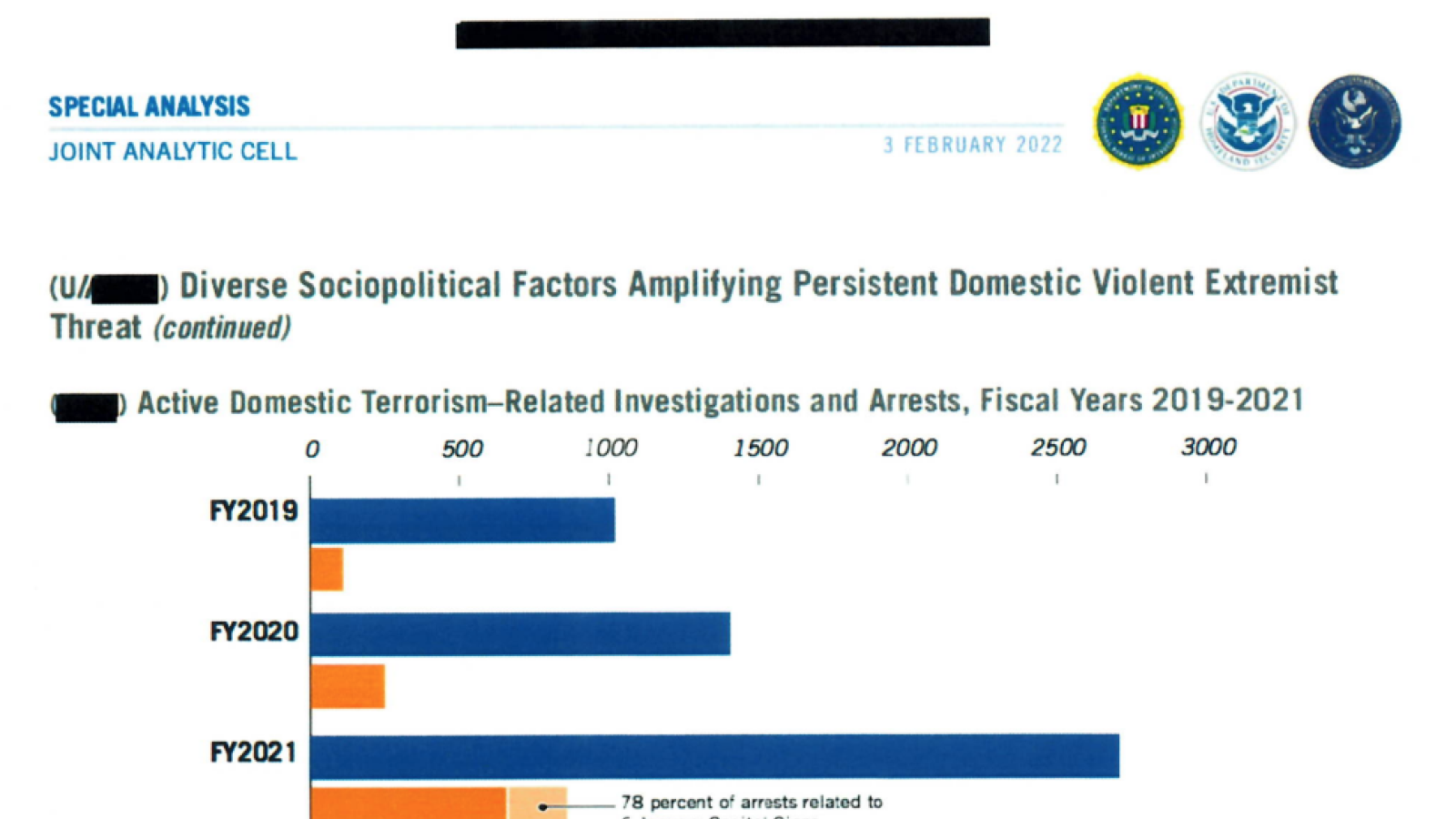
Declassified by ODNI in April 2025
Joint Analytic Cell on DVE
Biden Admin uses January 6 to shape domestic terrorism policy
Then-White House press secretary Jen Psaki announced only a few days after Biden was inaugurated as president in January 2021 that Biden had ordered a review of the allegedly rising domestic terrorism threat — citing January 6 as her sole example.
“The January 6 assault on the Capitol and the tragic deaths and destruction that occurred underscored what we have long known: The rise of domestic violent extremism is a serious and growing national threat,” Psaki told news outlets. “The Biden administration will confront this threat with the necessary resources and resolve.”
The Biden White House soon released its “National Strategy for Countering Domestic Terrorism” in June 2021. The White House “fact sheet” at the time said that “on his first full day in office, President Biden directed his national security team to lead a 100-day comprehensive review of U.S. Government efforts to address domestic terrorism, which has evolved into the most urgent terrorism threat the United States faces today.”
The Biden administration’s domestic terrorism strategy repeatedly cited January 6 as among its main justifications.
“Domestic terrorist attacks in the United States have also been committed frequently by those opposing our government institutions,” the strategy said, adding that “just months ago, on January 6, 2021, Americans witnessed an unprecedented attack against a core institution of our democracy: the U.S. Congress.”
Apples and oranges
“Victims of the 1921 Tulsa massacre bore the terrible brutality of domestic terrorists of their era. Victims of the 1995 Oklahoma City bombing suffered the awful inhumanity of domestic terrorists of their time. Victims in Charleston, El Paso, Pittsburgh, Poway, and even the U.S. Capitol now join this tragic history,” the Biden strategy document argued.
That same document never disclosed to the public that one key difference between the other events cited and the Capitol riot was that, unlike the perpetrators in the previous deadly domestic terrorist attacks, the January 6 rioters did not kill a single person.
“The Intelligence Community (IC) assesses that domestic violent extremists (DVEs) who are motivated by a range of ideologies and galvanized by recent political and societal events in the United States pose an elevated threat to the Homeland in 2021,” the Biden-era domestic terrorism document argued, going on to again cite the Capitol riot.
“Enduring DVE motivations pertaining to biases against minority populations and perceived government overreach will almost certainly continue to drive DVE radicalization and mobilization to violence. Newer sociopolitical developments — such as narratives of fraud in the recent general election, the emboldening impact of the violent breach of the U.S. Capitol, conditions related to the COVID–19 pandemic, and conspiracy theories promoting violence — will almost certainly spur some DVEs to try to engage in violence this year.”
Garland: "No higher priority"
Then-Attorney General Merrick Garland declared in January 2022 that “there is no higher priority for us at the Department of Justice” than going after those involved with January 6, calling the DOJ’s inquiry “one of the largest, most complex, and most resource-intensive investigations in our history.”
Matt Olsen, the assistant attorney general in charge of the DOJ’s National Security Division, announced the creation of a new “domestic terrorism unit” in January 2022.
FBI Director Kash Patel said during his late January confirmation hearing before the Senate that "I do not agree with the commutation of any sentence of any individual who committed violence against law enforcement."
Patel also said that “I also believe America is not safer because of President Biden's commutation of a man” — Leonard Peltier — “who murdered two FBI agents… So it goes both ways."
President Donald Trump issued pardons and commutations in January of this year to the hundreds of defendants who had been charged by the DOJ for their involvement in the Capitol riot.
FBI, DHS, and DOJ sell inflated domestic terrorism numbers by adding Jan. 6 to mix
Then-FBI Director Christopher Wray, then-DHS Secretary Alejandro Mayorkas, and other Biden-era law enforcement and intelligence community leaders repeatedly cited the alleged vast increase in domestic terrorism cases to justify their arguments that the domestic terrorism threat had significantly increased — but they never publicly revealed that the increase in domestic terrorism cases was overwhelmingly sourced from the one-day riot at the U.S. Capitol.
“The number of FBI investigations of suspected DVEs has more than doubled since the spring of 2020,” Wray testified to Congress in August 2022. “In January, we marked the one-year anniversary of the January 6 siege of the U.S. Capitol, which has led to unprecedented efforts by the Department of Justice, including the FBI, to investigate and hold accountable all who engaged in violence, destruction of property, and other criminal activity on that day.”
“The top domestic terrorism threat we face continues to be from DVEs we categorize as Racially or Ethnically Motivated Violent Extremists (‘RMVEs’) and Anti-Government or Anti-Authority Violent Extremists (‘AGAAVEs’),” Wray told Congress in April 2023, again arguing that “the number of FBI domestic terrorism investigations has more than doubled since the spring of 2020, and as of the end of fiscal year 2022, the FBI was conducting approximately 2,700 investigations within the domestic terrorism program.”
Wray would go on to repeat these same arguments almost word-for-word in front of Congress again in July 2023, December 2023, and elsewhere. Wray’s language was also echoed by Mayorkas.
“The top domestic terrorism threat we face continues to be from DVEs we categorize as Racially or Ethnically Motivated Violent Extremists (‘RMVEs’) and Anti-Government or AntiAuthority Violent Extremists (‘AGAAVEs’),” the Biden DHS secretary told Congress in November 2023. “The number of FBI domestic terrorism investigations has more than doubled since the spring of 2020. As of September 2023, the FBI was conducting approximately 2,700 investigations within the domestic terrorism program.”
DOJ's Olsen testified in July 2022 that “the number of FBI investigations of suspected DVE has more than doubled since the spring of 2020” — and his very next sentence was about the Capitol riot, saying, “In response to the January 6th assault on the U.S. Capitol, the Department of Justice has undertaken unprecedented efforts to investigate and hold accountable all who engaged in violence, destruction of property, and other criminal activity on that day.”
FBI, DHS, and DOJ talk around the facts in their reports
The Government Accountability Office (GAO) released a February 2023 report on “Domestic Terrorism” but was unable to provide specific breakdowns on which domestic terrorism cases were tied to January 6 and which were not — because the Biden administration would dance around that issue for years.
“Fiscal year 2021 also coincided with the January 6, 2021 attack on the U.S. Capitol,” the GAO report said. “EOUSA’s [the Executive Office for U.S. Attorneys] data does not explicitly state which cases in the dataset are tied to the January 6th attacks.”
The FBI and DHS released an October 2022 report which revealed the FBI was conducting approximately 1,400 pending domestic terrorism investigations as of the end of fiscal 2020 and was conducting roughly 2,700 domestic terrorism investigations by the end of fiscal 2021 — an increase of 1,300 domestic terrorism cases.
This assessment of domestic terrorism quietly mentioned that “a significant portion” of the 2021 investigations “were directly related to the unlawful activities during the January 2021 siege on the U.S. Capitol.” In fact, the DHS and FBI document catches them underplaying a "significant portion" when we now know that the January 6-related cases were essentially the entirety of the alleged increase in domestic terrorism.
The 2022 report said the FBI arrested approximately 180 domestic terrorism subjects in 2020, while it arrested roughly 800 such subjects in 2021.
Mostly peaceful protests
Large and often-violent protests swept across the U.S. in the summer of 2020 following the death of George Floyd, accompanied by rioting, looting, arson, and violence, while the Capitol riot occurred on Jan. 6, 2021. Republicans have repeatedly argued the Justice Department prosecuted the Capitol riot prosecutions more intensely than their investigations into the 2020 riots.
Jill Sanborn, then the executive assistant director of the FBI’s national security branch, referred to “2020 and the violence that we all saw around the peaceful protests” during January 2022 testimony and said the bureau had opened “slightly more than 800 cases” related to domestic terrorism tied to the dozens of nationwide 2020 riots — compared to thousands of domestic terrorism cases tied to the single riot of January 6.
Wray claimed in a February 2022 speech that the FBI was working just as hard to punish those involved in the 2020 George Floyd riots as it was to prosecute those tied to the Capitol riot of January 2021.
Wray said, “We have one standard, which is, I don’t care whether you’re upset about an election, upset about our criminal justice system, whatever it is you’re upset about, there is a right way and a wrong way to express what you’re upset about in this country, and violence, violence against law enforcement, destruction of property, is not it.”
Wray's subordinate, Olsen, revealed to Congress in July 2022 that much of the alleged rise in domestic terrorism figures was due to prosecutions of those involved in the events of January 6 — but then he claimed to not have specific information about it.
Rep. Jamie Raskin, D-Md., asked Olsen if the jump in domestic terrorism investigations had led to a jump in indictments, excluding Capitol riot-related prosecutions. Olsen replied, “I don’t have a specific number on that, congressman, because that number, that jump, doubling, that number does include the January 6 cases."
Olsen also said during his testimony that January 6 “stands apart” and “represents now the single largest domestic terrorism investigation in the nation’s history.”
FBI whistleblowers proven right about exaggeration of domestic terrorism
FBI whistleblowers would soon come forward to tell Congress that the FBI was artificially inflating the domestic terrorism numbers by quietly using thousands of January 6-related cases to argue that the domestic terrorism threat was on the rise — whistleblowers' claims which have been vindicated by the recently declassified internal analysis by the FBI, DHS, and NCTC.
The GOP-led Judiciary Committee and the Select Subcommittee on the Weaponization of the Federal Government issued a May 2023 report detailing their claims.
“Whistleblowers assert that the FBI pressured agents to reclassify cases as domestic violent extremism (DVE), and even manufactured DVE cases where they may not otherwise exist, while manipulating its case categorization system to feign a national problem,” the report said.
Chairman Jim Jordan’s report said at the time that whistleblowers contended that the FBI’s Washington Field Office was misleadingly categorizing Capitol riot cases to make the rise in DVE cases look more like a national problem rather than a significant amount of it stemming from one violent riot in the nation’s capital in January 2021.
“According to whistleblower information, the FBI has manipulated the manner in which it categorized January 6-related investigations to create a misleading narrative that domestic terrorism is organically surging around the country,” the GOP report said. “Ordinarily, the FBI characterizes and labels cases according to the originating field office, with leads ‘cut’ to other field offices for specific assistance in that geographic location. With January 6 cases, however, the FBI has not followed its ordinary procedure, which would have resulted in the WFO leading the investigation and categorizing the investigations as WFO cases.”
The report contended that “the FBI’s case categorization creates the illusion that FBI field offices around the country are investigating a groundswell of domestic terrorism cases, giving the impression that the threat of DVE is present in jurisdictions across the nation” while “the reality is simpler: The cases all stem from the same related investigation concerning the actions at the Capitol on January 6.”
January 6 turns out to be the "Black Swan"
House Republicans said that “this scheme permits the FBI leadership to misleadingly point to ‘significant’ increases in DVE threats nationwide.”
The House report said FBI supervisory intelligence analyst George Hill told the committee that “the pressure on FBI agents to meet metrics also contributed to the manipulation of DVE data” and that Timothy Thibault, the former FBI assistant special agent in charge of the Washington Field Office who left the bureau in August 2022, and the FBI’s former Assistant Director of the Counterterrorism Division Jill Sanborn both “pressured agents to move cases into the DVE category to hit self-created performance metrics.”
Sanborn denied this environment of pressure during closed-door testimony in February 2023, telling House investigators she could not recall any instances in which an FBI agent was pressured to reclassify a case. She said the process was “rooted in intelligence” that “made the DVE threat fall more elevated on that continuum than it maybe would’ve been five years ago.”
Pressure or not, FBI Special Agent Stephen Friend contended to House investigators that “the manipulative case file practice creates false and misleading crime statistics” because “instead of hundreds of investigations stemming from a single black swan incident at the Capitol, FBI and Justice Department officials point to significant increases in domestic violent extremism and terrorism around the United States.”
“By opening a separate case for each individual as opposed to one case with however many subjects are involved, they’ve turned one case into a thousand cases,” Friend continued. “And by spreading them to the field, they’ve given the impression that those domestic terror cases are around the country when, in fact, the subjects, if they committed any sort of violation or infraction, they committed a crime at the Capitol on one day as opposed to being a cell that’s operating in El Paso or Cleveland.”
FBI Special Agent Garret O’Boyle also claimed to House investigators that the FBI classified “every single Jan. 6 case … as a domestic terrorism case.”
The Biden-era analysis, now shown to be misleadingly crafted by adding January 6 arrests to the "domestic terrorism" tally, shows that the whistleblowers appear to have been right all along.
The Facts Inside Our Reporter's Notebook
Links
- newly-declassified intelligence records
- civil libertarians
- an insurrection
- administrative apparatus
- did not kill anyone.
- told
- news
- outlets
- soon released
- fact sheet
- did not kill
- declared
- announced
- issued pardons
- said
- commutation
- testified
- told
- repeat
- these
- told
- testified
- released
- released
- report
- testimony
- implausibly claimed
- testimony
- revealed
- claimed
- whistleblowers
- issued
- report
- closed-door testimony
- Garret O'Boyle



